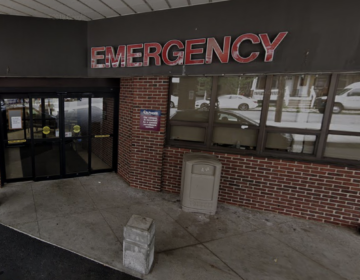Tepid applause by N.J. environmentalists for new EPA fracking rules
The federal government this week adopted new regulations to curb air pollution from drilling operations for natural gas caused by hydraulic fracturing, a step welcomed by environmentalists in New Jersey.
But they argued much more needs to be done to protect drinking water supplies from the drilling, a threat they say poses more harm to the water used by millions in three states.
The U.S. Environmental Protection Agency finalized the rules, which officials said could reduce harmful emissions from drilling operations by 95 percent, while not imposing new costs on the industry. More than half of the drilling operations already are using the technologies required under the new regulations.
The practice, dubbed fracking by critics, involves the injection of huge quantities of water, as well as some smaller quantities of chemicals, into shale formations where deposits of natural gas have been found. It has fueled a boon in domestic natural gas supplies, which have lowered electricity prices for consumers and businesses and helped revive a sagging economy.
In New Jersey, the drilling operations in Pennsylvania and New York have caused widespread concern that it may threaten the drinking supplies of 15 million people in the Delaware River Basin, including more than 1 million in New Jersey who rely on the Delaware River for their potable water supplies.
“The regulations are a longtime coming, but they don’t address the fact that the Delaware River Basin remains an open target for the gas industry,” said Doug O’Malley of Environment New Jersey. “It’s what we hope is the first step in reining in a renegade industry.”
In adopting the rule, Gina McCarthy, an assistant administrator at the EPA, described the regulations as “practical, flexible, affordable and achievable.” By capturing natural gas that would otherwise be released into the air during drilling, it could result in $11 million to $19 million in savings for the industry, she said during a telephone press conference.
At least one industry advocate said the final rule reflects improvements over the draft proposal.
Upon initial review, Howard Feldman, director of regulatory and scientific affairs at the American Petroleum Institute, said the rules recognize improvements to oil and natural gas production, including hydraulic fracturing operations, which allow for emission reductions while still allowing for production of oil and natural gas.
Responding to industry concerns, the federal agency changed the rule to establish a three-year phase-in period. According to EPA, an estimated 13,000 new and existing natural gas wells are fractured or re-fractured each year.
It is one of the reasons the practice still stirs widespread concern among environmental groups, especially in the Northeast and New Jersey where the drilling boom has spurred proposals to expand at least six natural gas pipelines to bring fuel into the lucrative metropolitan area.
The Marcellus Shale underlies approximately 36 percent of the Delaware River Basin in three states, overlapping much of the critical watershed lands overseen by the Delaware River Basin Commission, which has proposed rules that would lift a moratorium on fracking operations in the region. The agency expects between 15,000 and 18,000 wells will be drilled over the next two decades, using as much as 90 billion gallons of water.
“Developing air rules is a step in the right direction,” said Jeff Tittel, director of the New Jersey Sierra Club, “but the real issue is the threat to our ground and surface waters. As long as fracking isn’t regulated by the Safe Drinking Water Act or the Clean Water Act, it is always going to be a threat to drinking water supplies.”
Emily Wurth , water program director of Food & Water Watch agreed. “Problems are popping up all over the place,” she said.
NJ Spotlight is an online news service providing insight and information on issues critical to New Jersey, with the aim of informing and engaging the state’s communities and businesses.
WHYY is your source for fact-based, in-depth journalism and information. As a nonprofit organization, we rely on financial support from readers like you. Please give today.




